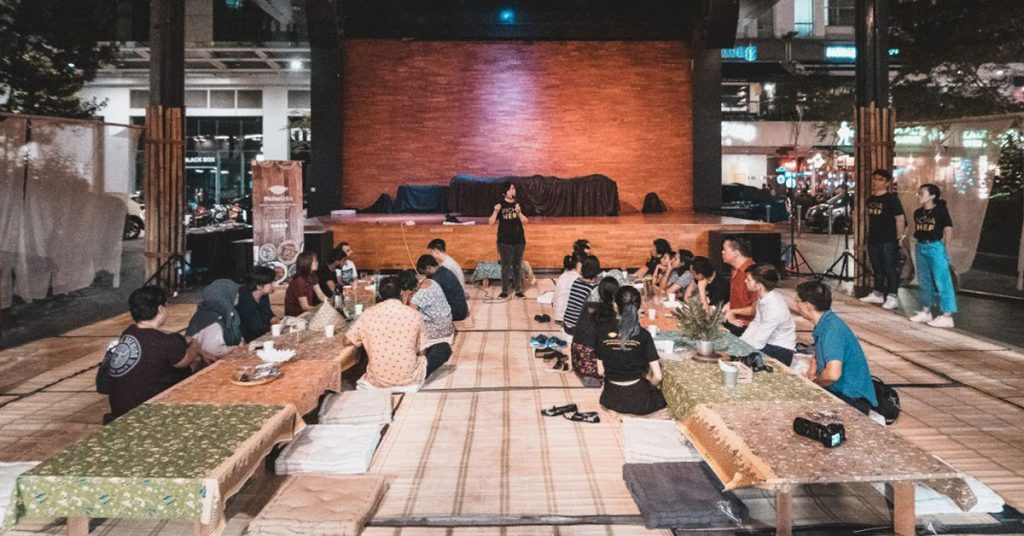Imagine this: Your country is no longer safe. The place that you’ve called home for so long is now a hostile place. So you trade in all your valuables, almost everything you own just so you can afford to make your way to a country where you think you’ll have a better life.
You get on a boat with your family—your grandparents, parents and children. We’re safe now, you think. We’ve made our escape.
But you discover that the nightmare isn’t over.
The captain of the ship says that there are rules: no loud noises, no complaints, no big movements. Fail to obey and he’ll throw you out. Fair enough, you think. You’re crossing an international border illegally, you don’t want to get caught either.
Salt water gets into everything. You realise that the boat owners have packed the boat to more than capacity. There aren’t enough rations. Sometime during the journey, fresh water runs out. The barely edible food isn’t enough to last. Your six-month-old baby drinks formula mixed with salt water.
The sea is unpredictable. Nobody knows when you’ll reach land. At some point, someone starts coughing up blood. Tuberculosis, it’s contagious. People start whispering about throwing him overboard. Eventually, he decides to go over on his own. You’re simultaneously relieved and horrified.
When you’re almost at the border, the crew warns everyone that silence is paramount. But now, your baby who’s sick from sea water and is always uncomfortable has started crying for most of the day.
Silence, they say. But there’s only one real way to do that. Your heart is heavy, but you do it anyway. You have other children.
Everything will be better when we reach land, you think. Except it isn’t.
Stepping into their shoes
This 20-minute experience was created by PichaEats as part of a dinner event they organised at the Future Food Festival 2019 held in Kuala Lumpur.
Meant to highlight the plight of refugees who give up almost everything they own to leave their home country, the experience provides a greater awareness of the difficult journey refugees go through, only to arrive in a country where they aren’t allowed to work, or go to school or have access to proper medical care.
Newly renamed from Picha Project to PichaEats, this social enterprise continues to do the work that they started three years ago to empower refugees in Malaysia.

“We rebranded ourselves because we were always getting questions from people asking if we were still running,” said CEO and co-founder Kim Lim, who added that the word “Project” gave people the impression that they were more of a one-off event.
More than just charity
The company is definitely here to stay and in the past few years, their business has generated RM3 million in revenue, with half of that going back to the refugees who work with them.
“We now have 15 chefs partnering with us and 100% of their children go to school,” said Kim.

Since rebranding, Kim says that people now treat them as “more of a food business”, rather than as part of a CSR campaign, and the company has been able to gain more quality feedback for improvement.
“It also helps us to make sure we provide quality food and services to our customers so we have to train the chefs we are partnering with more,” she said.
Picha chefs aren’t just home chefs. Prior to cooking for customers, they have to go through training under a professional chef. They also learn how to handle food safely and maintain best practices in the kitchen.
This is just the beginning
Although they’ve achieved a lot since they began operations in 2016, with recognition from around the globe—in 2019 they’ve already been selected as one of Booking.com’s top 10 sustainable tourism startups and Kim was listed on Asia Tatler’s Generation T—Kim says that there’s more work to be done.

The 20-minute experience that took diners through a refugee’s journey is a new concept that the team at PichaEats wants to take even further.
“We are trying to propose it to other festivals. Eventually we hope to achieve a two-hour experience. So this is just a start,” said Kim.
When the guests were seated at the start of the dinner, they were chatting casually to each other. By the end of the 20 minutes, most were silent.
Imagine what two hours could do.
- Find out more about PichaEats here.
Feature Image Credit: Jun Hong of Picha Eats











